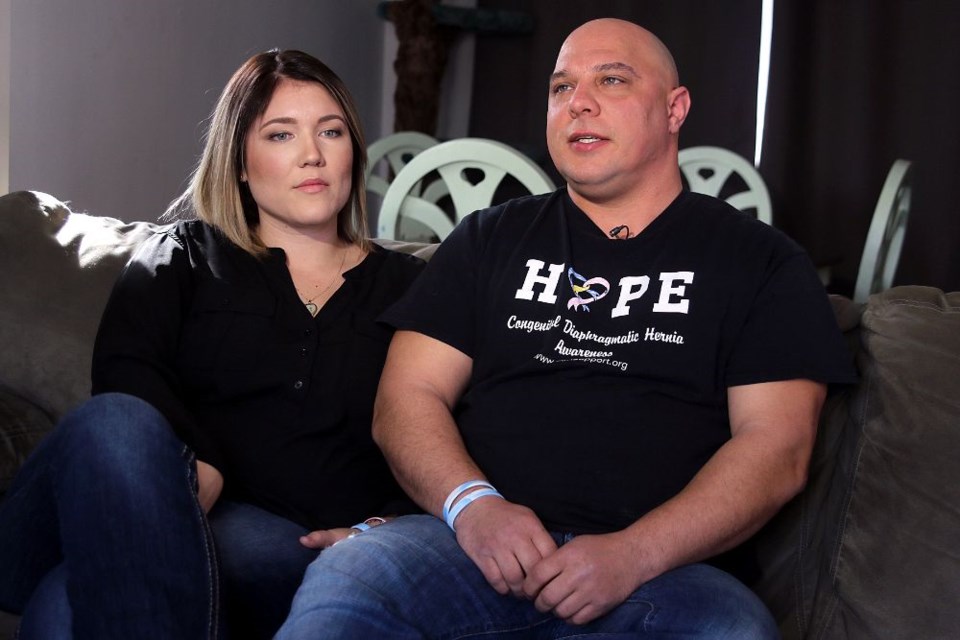THUNDER BAY -- When Ricki Parmeter and Kevin Dubray learned they were expecting, it was the ultimate joy.
But the Thunder Bay couple’s happiness was short-lived.
Soon afterward, during a routine examination, their doctor delivered news that would change their lives – their unborn son was suffering from a congenital diaphragmatic hernia, a potentially fatal birth defect that affects about one in every 2,500 births each year.
They were faced with two choices: let nature take its course and hope for the best or undergo an experimental embryonic surgical technique that would see an inflatable balloon inserted inside their baby’s esophagus, an attempt to prevent the lung damage typically associated with the condition.
They chose the latter, but unfortunately, it didn’t work.
Their son, Lucas, born last May, died soon after birth, his parents having uprooted their lives to spend several months in Toronto, one of the few centres in Canada where CDH can be treated.
They’re hoping an awareness campaign in Thunder Bay and across the country can help spur more research into the causes of CDH, and have convinced the city to designate April 19 as Congenital Diaphragmatic Action Day.
“After we found out the prognosis, we were pretty devastated,” Dubray said on Friday. “He had only about 17 per cent capacity with both of his lungs and the doctors started preparing us for a long battle.”
It’s been an emotional journey, he said.
Before the diagnosis, the couple had never heard of CDH, yet it’s as common as more well known diseases like spina bifida and cystic fibrosis.
“Even our midwife, at the time, she knew very little about it. She had to do research as well. So we’re just trying to raise awareness, trying to teach people about it,” Dubray said.
The most challenging aspect is not knowing why CDH occurs.
“As of right now, there is no known cause,” Parmeter said.
“There’s no cure. We’re hoping with more awareness comes more funding or answers. And it’s just the moral support. It’s a very lonely road.”
The couple has found strength from Cherubs, an American-based charitable organization, a group they are hoping can spread its wings in Canada to help parents learn about their options when their unborn child is facing an affliction that leads to death in about 50 per cent of all cases.
“Maybe they can figure out why or how the birth defect happens,” Dubray said.
Every little bit helps, his partner said.
“I think there is always hope, in the sense that it can only improve. Knowledge is power with science and technology. But without funding and awareness, how do you take that first step?”
Sign in or register
- Messages
- Post a Listing
- Your Listings
- Your Profile
- Your Subscriptions
- Your Likes
- Your Business
- Support Local News
- Payment History
Registered Users
Already have an account?
New Users
Create a free account.
